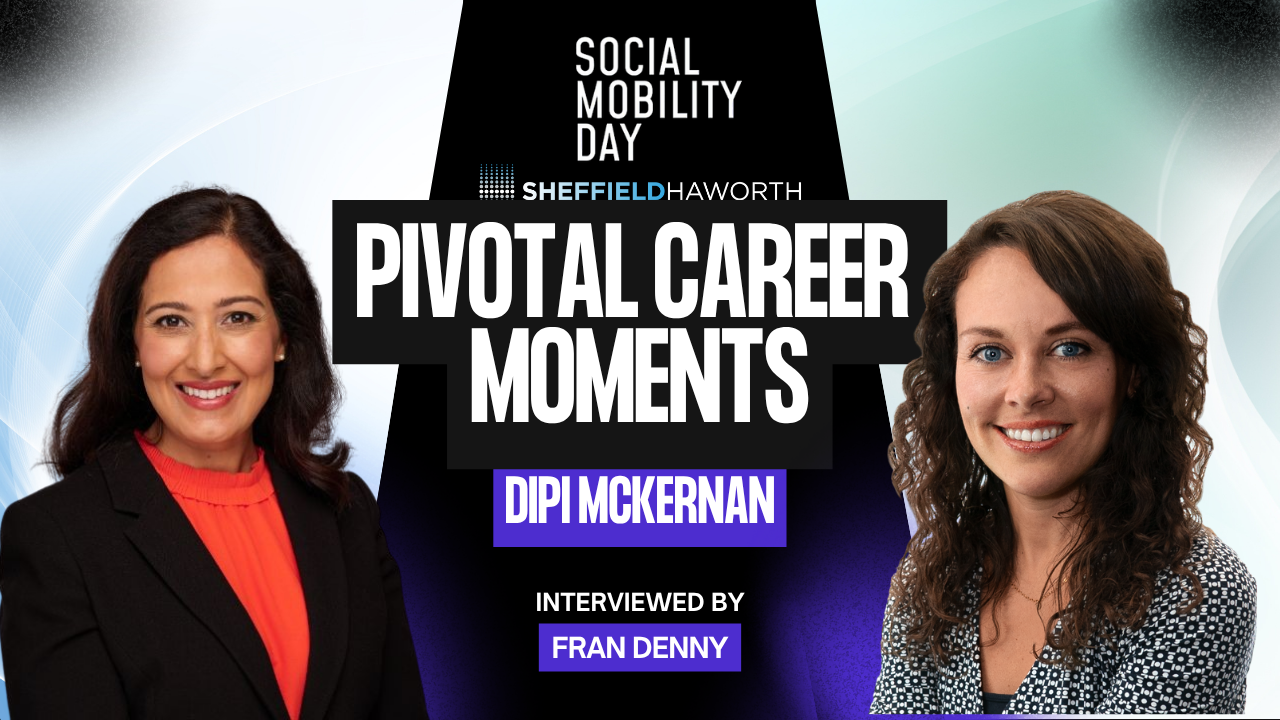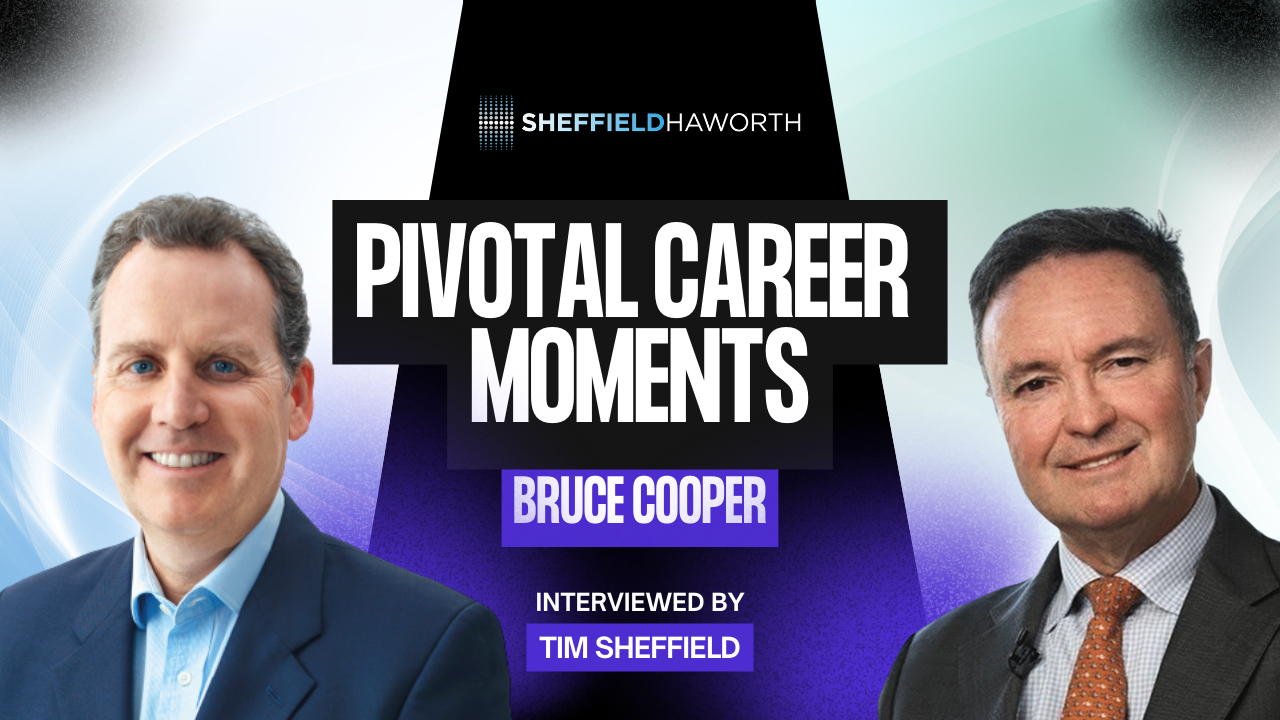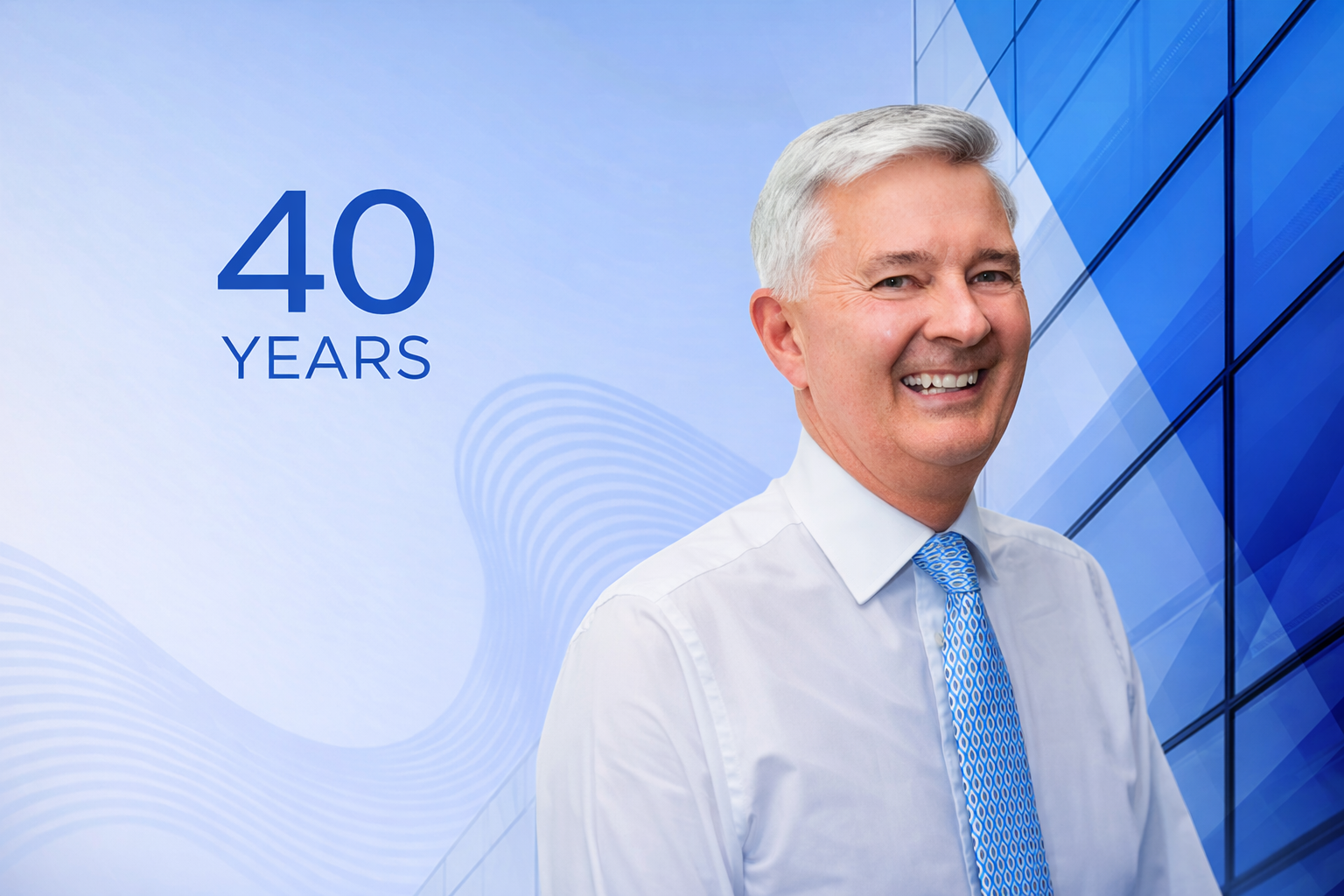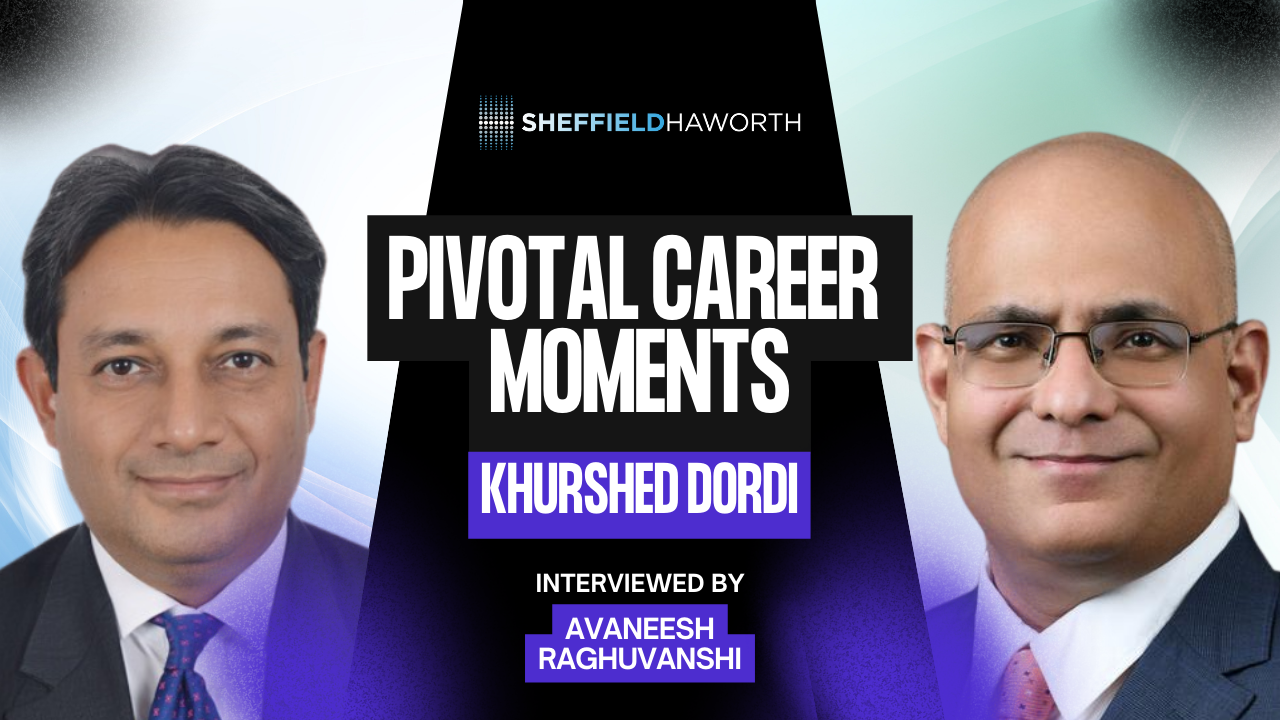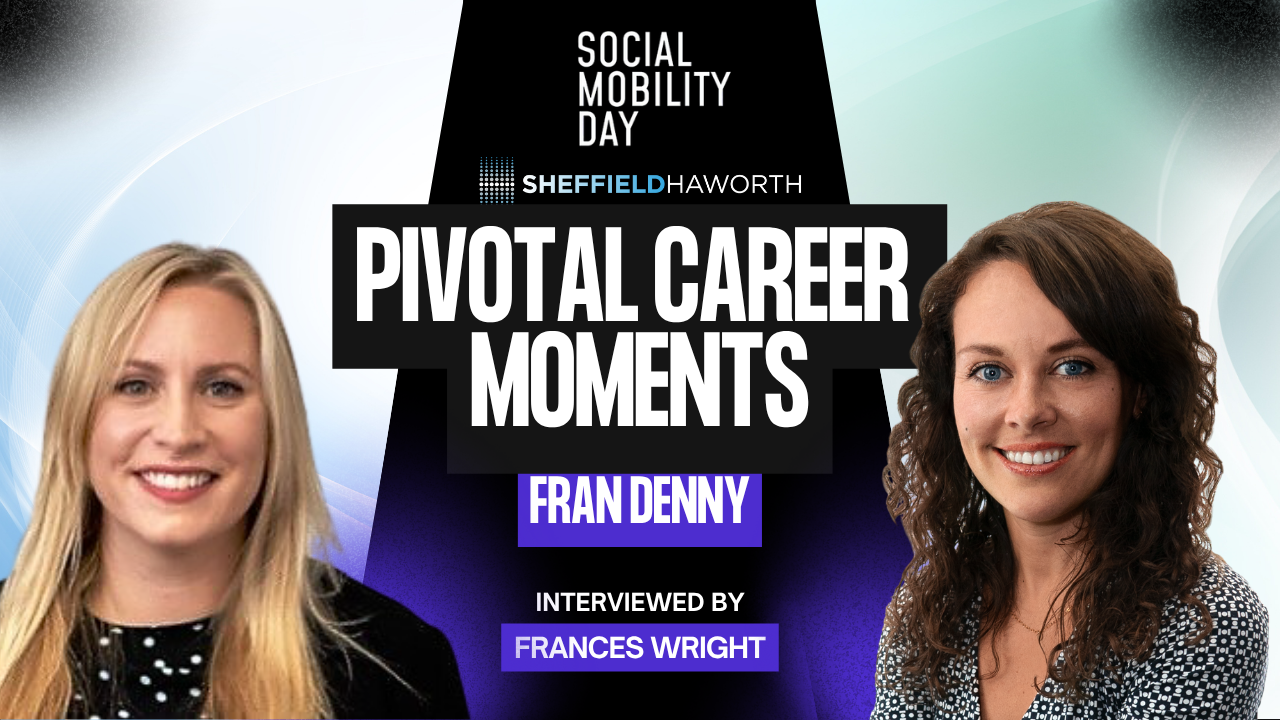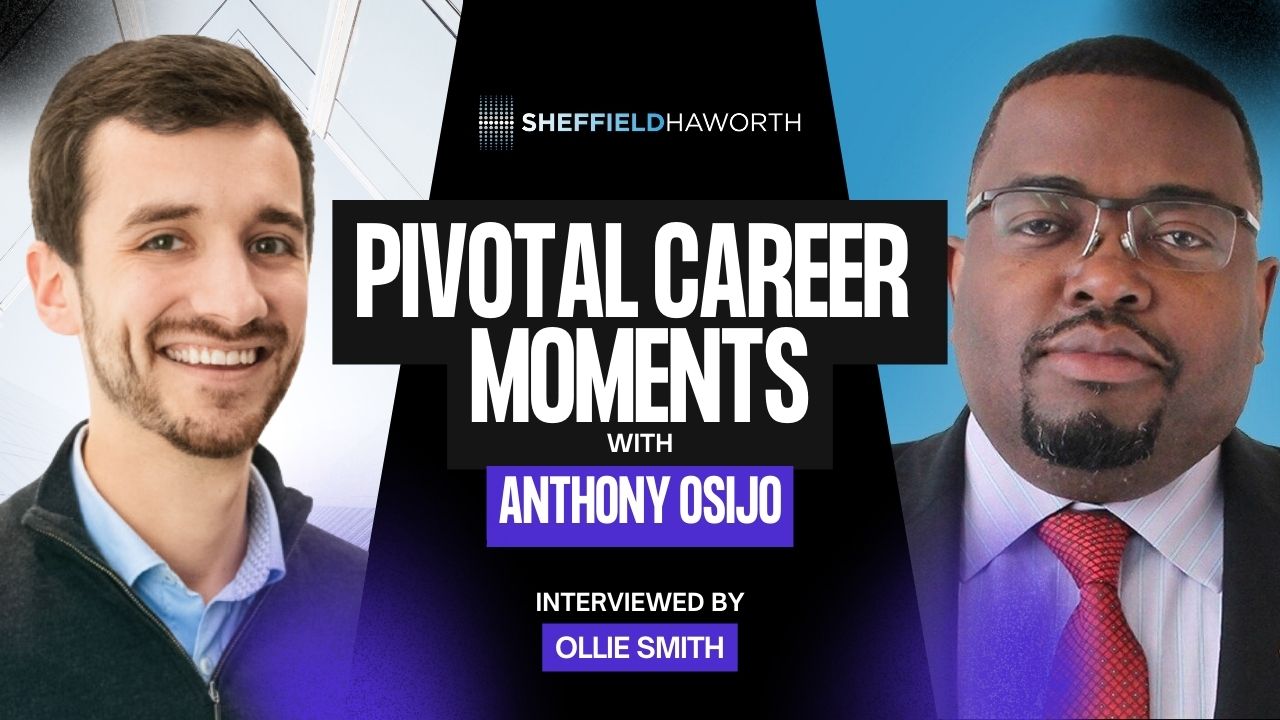In our Pivotal Career Moments interview series, we speak with exceptional leaders to uncover the moments that have shaped their careers and outlooks on leadership. To mark Social Mobility Awareness Day on June 12th, Fran Denny, Managing Director and lead of Sheffield Haworth’s Socio-Economic Diversity group sat down with Dipi McKernan, Chief Controls Officer for Insurance, Pensions and Investments at Lloyds Banking Group and a board member of Progress Together, a not-for-profit committed to improving socio-economic diversity in UK financial services.
In this discussion, we look back over some of the pivotal moments in Dipi’s career, what she’s learnt along the way, and the advice she would give to others.
Fran: Dipi, thank you for joining us! To get us started, could you tell us a bit about your background?
Dipi McKernan: So, I’ve been in the industry for over 25 years now and worked across a whole range of organisation, including Barclays, Deutsche Bank, the FCA, Fidelity, M&G, PA Consulting; and now I’m at Lloyds, where I joined at the end of last year as Chief Controls Officer for Insurance, Pensions and Investments.
It’s a really integral part of the business, with a huge customer base, and I’m genuinely excited about the opportunity.
Fran: You’ve held senior roles across some of the most established names in financial services. Was there a pivotal moment early in your career that shaped the kind of leader you wanted to become?
Dipi: There absolutely was. Something I didn’t talk about much in the early days is that I come from a lower socio-economic background. I didn’t go to university in the traditional way and did my higher education part-time while working.
For a long time, I had this huge sense of impostor syndrome. I worked in environments where many of my peers had gone to private schools and top universities. I, on the other hand, went to a local comprehensive where the majority of the girls were Black or Asian. Career aspirations were often quite limited; many of us desired to work in the financial services, but never to get to a senior level, or it was simply to get married. That was it. That was the sort of ambition we had. And so, I had huge amounts of impostor syndrome.
What I came to realise was that growing up in that environment gave me some incredible skills, such as resilience, creativity, the ability to problem-solve and just get stuff done. These were the things that helped me rise through the ranks.
But the real pivotal moment came when I was at the FCA. I was in a leadership role and had an external coach who said, “You know you’re actually really good, right?” And that was the first time I’d ever paused to acknowledge that. It gave me the confidence to own my journey and everything I’d achieved.
Fran: It’s so powerful to hear that. That moment of validation from someone else can make all the difference. And those skills – grit, resilience, focus – are such assets, especially in an industry that’s constantly evolving.
Dipi: Absolutely. And I’ve been very lucky to have some fantastic mentors and sponsors along the way. People who saw something in me, often before I saw it in myself. Those qualities you develop growing up in a lower socio-economic background, resilience, adaptability, perseverance – they’re incredibly useful in financial services, especially in times of uncertainty and change.
Fran: And speaking of change, you’ve balanced transformation and operational roles throughout your career, while continuing to champion inclusion. Was there a particular moment that made you want to use your platform to push for greater awareness?
Dipi: Yes, definitely. When I was at the FCA, I was asked to be the executive sponsor for race. And it was the first time I really stopped to reflect on my background—my ethnicity, my upbringing. Like a lot of people from underrepresented groups, I’d spent years trying to fit in, to not stand out. But suddenly I realised, actually, I am different. And I should use that difference for good.
Around that time, we had the Social Mobility Commission come in and talk about how much more effort young people from lower socio-economic backgrounds often have to make just to reach the same starting line. That really stayed with me.
Later, when I moved to Deutsche Bank, I remember sitting in this beautiful office in Canary Wharf, looking out at Tower Hamlets and thinking, “We have to do more.” That was a pivotal moment for me. It made me realise we needed to talk about social mobility as a proper strand of inclusion, not just ethnicity or gender.
Fran: That’s such a vivid image looking out over Tower Hamlets and recognising the disconnect. Socio-economic background is often overlooked, but it cuts across so many other strands of diversity.
Dipi: Exactly. It’s a hidden characteristic, but it intersects with everything, for example ethnicity, gender, disability. And what’s powerful about focusing on socio-economic diversity is that it creates common ground. A young white man and an older Asian woman could come from the same background and share that sense of resilience and empathy.
That’s what led me to Progress Together. We’ve made real progress in bringing firms together, building momentum across the industry. But we still have work to do, especially at senior levels. The challenge now is around disclosure. It’s hard to address the gap when people don’t feel they can share their background. But when senior leaders do share their stories, it has real impact.
Fran: There’s been such a tendency to mask anything that makes us feel “other “, whether that’s where you went to school, your accent, or even the kind of jobs your parents did. But as you say, when people share their stories, it becomes such a powerful tool for inclusion. You mentioned earlier your involvement with Progress Together, since getting involved, what shifts have you seen? And what would you still like to see?
Dipi: Progress Together has been brilliant. It came out of a taskforce backed by the City of London, government, and regulators, focused specifically on improving socio-economic diversity at senior levels. Because the truth is there’s a lot of social mobility happening at junior levels. Apprenticeships, outreach programmes, school partnerships… all fantastic. But the real challenge has been that “glass ceiling” at the top.
When you look at boardrooms and executive teams, they’re still largely made up of people from more privileged backgrounds. We wanted to change that. And we know, because the data backs it up, that more diverse leadership teams perform better. They’re more innovative, more resilient, more commercial. It just makes business sense.
But the hardest part? Getting the data. Because as we said, it’s a hidden characteristic. Many people don’t disclose their background. And they wonder, “Why should I? What does it have to do with how well I do my job?”
But the point is, representation matters. If you’re a young person in the industry and you realise your CIO, or your CEO had a similar start to you; it can be transformational. That’s why we’re encouraging more senior leaders to share their stories. Visibility changes things.
Fran: Completely. And on that, access is one part of the puzzle, but so is progression. I think the statistic is that it takes individuals from lower socio-economic backgrounds around 25% longer to progress. Not because of ability, but because of things like sponsorship and access to networks. That’s where shifting mindsets really matters.
Dipi: Yes, and I just want to make one thing really clear. This isn’t about lowering the bar. There’s often a misperception that inclusion somehow means compromising on quality. It doesn’t. It’s about widening the gate, not lowering the bar.
It’s about recognising that talented people exist everywhere, not just in the obvious places. But they may not have the same networks, they may not have seen people like them in leadership, and they may not know how to get there. That’s where we all have a role to play.
Fran: As you look back over your own career; were there moments of sponsorship or support that, in hindsight, you wouldn’t have progressed without?
Dipi: Definitely. One person I always talk about is Lesley Titcomb, who was my line manager at the FCA. At the time, she was Chief Operating Officer and later went on to lead the Pensions Regulator. She’s a force of nature. She came from a very different background to me; Oxford, very polished, but she saw something in me early on that I hadn’t seen in myself.
She gave me big opportunities, backed me for promotions, encouraged me to build my network and speak up. And that was huge for me. It wasn’t just the work; it was those conversations, that belief. She’s been a real role model and mentor, and I’m so grateful for that.
Fran: And now you’ve recently joined Lloyds. How do their values align with the impact you want to have in your role and more broadly through your work with Progress Together?
Dipi: That was a big reason why I joined Lloyds. I’d been speaking with them for about a year before I joined – I wanted to make sure their values genuinely aligned with mine.
What really stood out to me was their focus on helping Britain prosper. It’s not just a slogan; they genuinely care about customers, communities, and doing the right thing. Lloyds really sees its inclusion strategy as an important part of representing our customers and demonstrating empathy, particularly with vulnerable customers. Social mobility is something they’re investing in, and I see that reflected in every part of the business, right from operations to pensions to tech.
Everyone within the organisation talks about outcomes, inclusion, and making a difference, and it’s not performative. It’s in the culture. That’s what attracted me and continues to motivate me.
Fran: My final question, Dipi: If someone reading or listening to this today is navigating their own path…maybe they’ve got a similar background to yours, maybe they’re earlier in their journey, what advice would you share?
Dipi: Two things. First, build your network. I know that word can make people cringe, but it’s not about going to awkward events and handing out business cards. It’s about building real connections with people who inspire you, who challenge you, who might mentor or sponsor you. Financial services is a small world. Your reputation follows you, so invest in it.
And second; find mentors. Seek out people you admire and ask them for advice. People are usually more than happy to help. And over time, those relationships become invaluable. They’ll support you, advocate for you, and guide you when it matters.
And when you’re able to do so, pay it forward. Mentor others. Share your story. Be that person for someone else.
Fran: That’s such a great note to end on. Thank you, Dipi for your honesty, your insight, and for sharing your story with us. It’s been an absolute pleasure.
